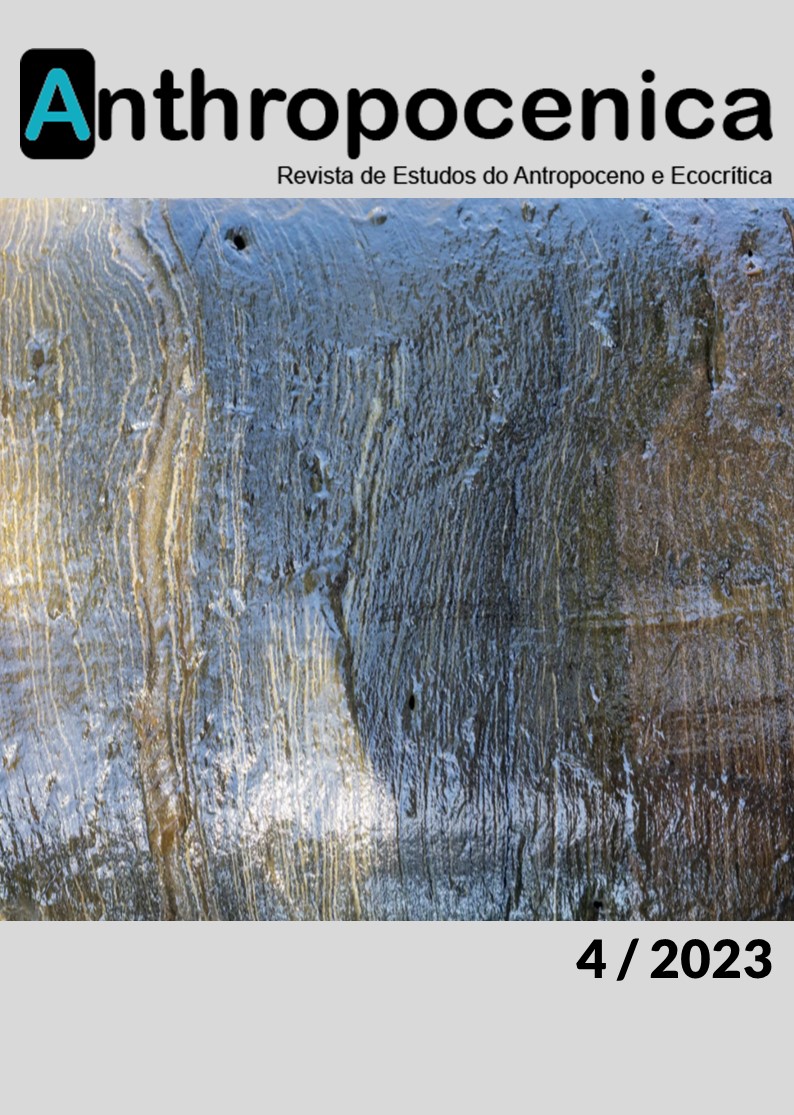Promethean discourse on digital social networks: the case of François Legault on Instagram.
DOI:
https://doi.org/10.21814/anthropocenica.4551Keywords:
Ecocriticism, Representation of nature, Discourse analysis, Argumentation, Pathos.Abstract
While linguistic research on environmental and ecological discourse has been expanding, this article proposes to broaden its scope by analyzing communication on digital social networks by a French-speaking politician, François Legault, the Premier of Quebec. Despite political ecology becoming a consistently addressed topic by politicians and the media since the 2010s, it remains intriguing to observe the socio-discursive imaginaries of the environment and the emotions that speakers employ when aiming to engage their audience. This contribution allows us to understand how the discourse of a North American politician, on Instagram in 2019, employs mechanistic imaginaries and positive emotions through images and texts to advocate for the integration of economic growth and ecological transition. To achieve this, John S. Dryzek's typology of environmental discourse is put to the test here, along with the tools of French Discourse Analysis and argumentation.
Downloads
References
Barthes, R. (1964). Rhétorique de l’image. Communications 4, pp. 40-51. DOI: https://doi.org/10.3406/comm.1964.1027
Bauer, M. & Gaskel, G. (éds). (2000). Qualitative Researcjing with Text, Image & Sound: A Practical Handbook. New York : Sage Publications. DOI: https://doi.org/10.4135/9781849209731
Bonnet, V. & Geslin (dir.). (2019). Les mots de l’écologie (numéro thématique). Mots, les langages du politique n°119.
Campion, B. (2016). Alarmisme et catastrophisme ? Rhétoriques de la peur dans les échanges en ligne relatifs aux changements climatiques. In T. Libaert, T. (Ed.), La communication environnementale. Paris : CNRS Éditions. DOI: https://doi.org/10.4000/books.editionscnrs.20859
Catellani, A. (2016). Sémiotique de la communication environnementale. In T. Libaert (Ed.), La communication environnementale. Paris : CNRS Éditions. DOI: https://doi.org/10.4000/books.editionscnrs.20865
Dauphin, R. (2007). La croissance de l'économie du Québec au 20e siècle. Québec : Institut de la statistique Québec. https://numerique.banq.qc.ca/patrimoine/details/52327/45436
Dryzek, J. S. (2005). The politics of the earth: environmental discourses (2nd ed.). Oxford et New York: Oxford University Press.
Fløttum, K. (éd.). (2017). The Role of Language in the Climate Change Debate, New York: Routledge. DOI: https://doi.org/10.4324/9781315456935
Fløttum, K. (2019). Le changement climatique en discours. Cahiers de praxématique 73. https://journals.openedition.org/praxematique/5739 DOI: https://doi.org/10.4000/praxematique.5746
Garrard, G. (2012). Ecocriticism. Abingdon, Oxon et New York: Routledge.
Gjerstad, Ø. (2019). Le dialogue des récits climatiques : une analyse narrative et polyphonique. Cahiers de praxématique 73. https://journals.openedition.org/praxematique/5774 DOI: https://doi.org/10.4000/praxematique.5774
Kerbrat-Orecchioni, C. (2002). L’énonciation : de la subjectivité dans le langage. Paris : Armand Colin.
Kerbrat-Orecchioni, C. (2008). Les actes de langage dans le discours, Théorie et fonctionnement. Paris : Armand Colin.
Liebhart, K. & Bernhardt, P. (2017). Political Storytelling on Instagram: key aspects of Alexander Van der Bellen’s Successful 2016 Presidential Election Campaign. Media and Communication, 5(4), pp 15-25. DOI: https://doi.org/10.17645/mac.v5i4.1062
Mathieu, J. & Lacoursière, J. (1991). Les Mémoires québécoises. Québec : Presses de l’Université de Laval.
Merchant, C. (2021). La mort de la nature. Les femmes, l’écologie et la Révolution scientifique. Trad. : Margot Lauwers. Paris : Wildproject.
Merzeau, L. (2016). Le profil : une rhétorique dispositive. Itinéraires, 2015-3/2016. http://journals.openedition.org/itineraires/3056. Consulté le 14 janvier 2022. DOI: https://doi.org/10.4000/itineraires.3056
Monière, D. (1982). Essai sur la conjoncture politique au Québec : Pour la suite de l’histoire. Montréal : Québec / Amérique.
Petiot G. (1994). Les mots de l'écologie. Mots, 39 (Environnement, Écologie, Verts), pp. 69-78. https://doi.org/10.3406/mots.1994.1887 DOI: https://doi.org/10.3406/mots.1994.1887
Plantin, C. (2011). Les bonnes raisons des émotions. Principes et méthodes pour l’étude du discours émotionné. Berne : Peter Lang. DOI: https://doi.org/10.3726/978-3-0352-0070-6
Posthumus, S. (2010). Etat des lieux de la pensée écocritique français. Ecozon@, 1(1), pp.148-54. DOI: https://doi.org/10.37536/ECOZONA.2010.1.1.333
Quinton, F., Poels, G. & Lefort, V. (2020). Trois fois plus de temps pour l’environnement dans les JT depuis la fin des années 1990. La revue des médias. https://larevuedesmedias.ina.fr/environnement-jt-information-television-energie-climat-pollution-biodiversite
Savard, S. (2013). Hydro-Québec et l’état Québécois, 1944-2005. Québec : Éditions du Septentrion.
Stibbe, A. (2021). Ecolinguistics. Language, Ecology, and the Stories We Live By. Londres : Routledge. DOI: https://doi.org/10.4324/9780367855512




